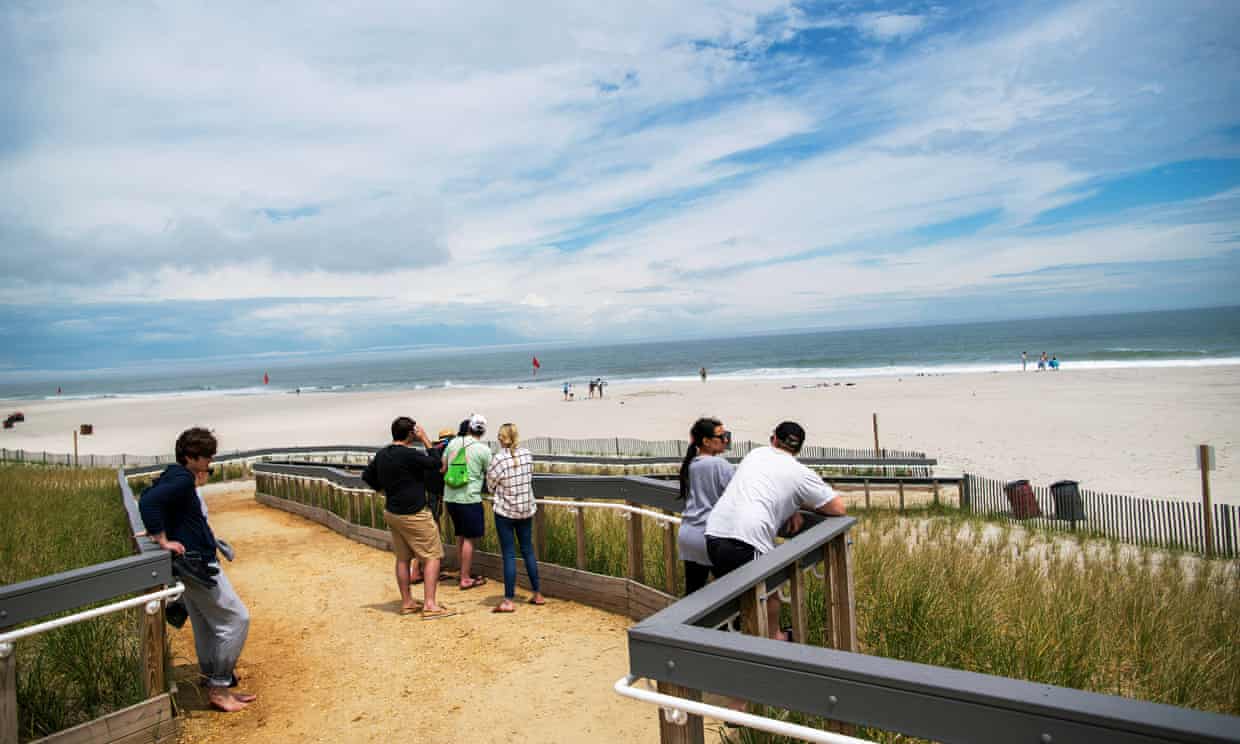
Opinion
New Yorkers once sneered at the suburbs. Now the boot is on the other foot
Blame it on coronavirus. Lockdown-crazed city-dwellers planning summer vacations are facing soaring prices
by Emma BrockesA few weeks from now, school lets out in New York, and the threat of an endless summer yawns open. For anyone who grew up in Britain, summer holidays in this city already seem absurdly long, stretching for almost 10 weeks from late June to September. This year, after months of lockdown, parents are looking ahead with something like desperation. No one wants to travel; every conceivable way to divert a small child has been exhausted; and the city is a sweatbox in July and August. With all the caveats in place about counting one’s blessings, the question remains: what are we going to do for the summer?
Like most major cities, New York hasn’t always had the greatest respect for its neighbours, those people who, in better times, came into town on a Saturday night via the bridges and tunnels. To say residents of New Jersey did not, on balance, enjoy an unfettered welcome from New Yorkers is an understatement. They were deemed too loud, too drunk, too high in number, and some of them pulled suitcases on wheels. Well, as they say: who’s laughing now? Nobody wants to come into the city any more, and for those who live here, the shoreline remains closed. Meanwhile, the beaches of New Jersey and Long Island are open.
Or at least, they’re open to their own residents. Understandably, coastal communities within driving distance of New York don’t want the city hordes to descend. Several of the closest beaches on Long Island have hastily set up a system whereby you need a residence permit to set foot on the sand. Airbnb rentals have been banned in some towns on the Jersey Shore. Farther out, on Long Island, residents have tried to close car parks that abut the main beaches. If there is a sense of satisfaction on display in some of these actions, it’s akin to the boot finally being on the other foot.
It’s not just a question of shutting New Yorkers out, either. There is also the option of welcoming them in for what looks like a little light price -gouging. In upstate New York and towards the Delaware coast, enterprising home-owners are advertising summer rentals at exorbitant rates. In the supermarket at the weekend, I ran into the mother of one of my kids’ friends – a woman with whom, by the way, I conducted an entire conversation while labouring under the delusion she was somebody else, because who can tell anyone apart, these days, behind masks – who was in high dudgeon after being quoted a staggering $35,000 for a summer rental in New Paltz. (New Paltz: a perfectly pleasant town in upstate New York, but not exactly a staple of Condé Nast Traveller.) Elsewhere, the going rate for a tiny, out of the way rental near some godforsaken lake is coming in at around $8,000 a month. Indignation does not begin to cover it.
Class resentment has been a feature of the pandemic since day one, when those who left the city for their country retreats were instantly hated by everyone who followed them on Instagram. It’s no surprise, three months in, that suburban communities should direct some of that mocking disdain towards the city residents who have always disparaged them. The surge of adrenalin that comes from hating Ellen DeGeneres or David Geffen or the residents of Manhattan’s upper middle class neighbourhoods might be a diversion from blaming the clowns who got us here, but it at least offers some recreational relief. And it’s better than taking it out on our families (again).
Squabbling between the city and the suburbs also feels like a reassuring return to business as usual. In response to denying New Yorkers access to the Long Island beaches, a Manhattan City council member retorted that perhaps out-of-towners should be banned from attending the city’s St Patrick’s Day parade – a threat that doesn’t exactly bite these days. Others suggested introducing a congestion charge to hammer commuters who are no longer commuting.
For our part, my friends and I are crossing fingers that New York mayor Bill de Blasio opens the city beaches in June, so we can take a ferry to a glamping site in Queens. It’s a city beach, within a short cab ride of all the major hospitals, which is as far as our spooked psyches will allow us to go. There, with any luck, we’ll spend a few days sitting six feet apart, enjoying the stars and taking part in one group activity that’s still allowed – resenting other people.
“Think about it,” said a friend recently, when I raised the concern that New York will empty out for the summer and never return to normal. Second-homers, bankers, those drawn to the social conservatism of the suburbs. “It’s going to be great. All the worst people are leaving.”
• Emma Brockes is a Guardian columnist